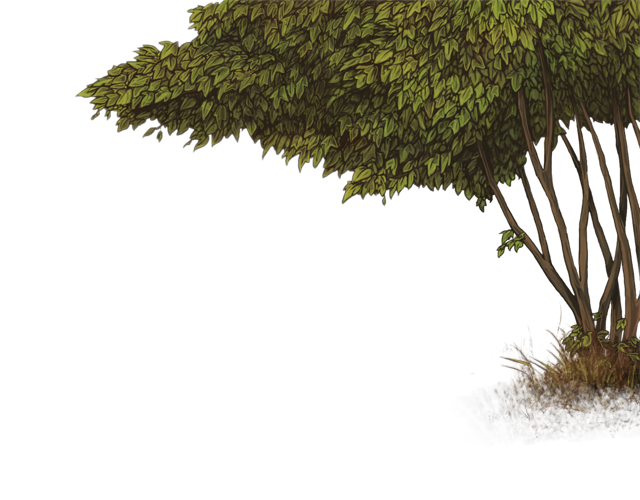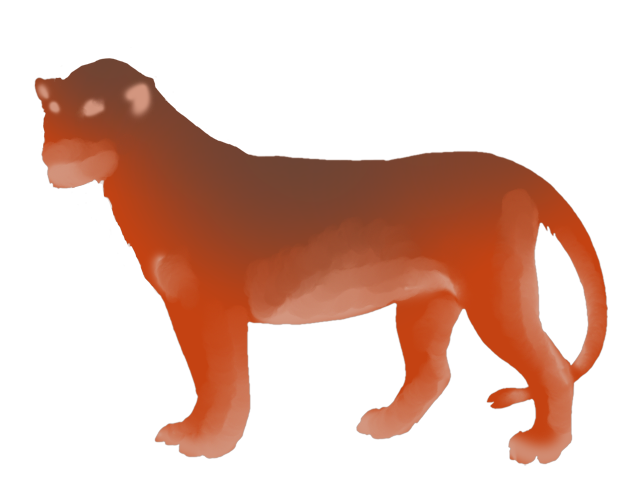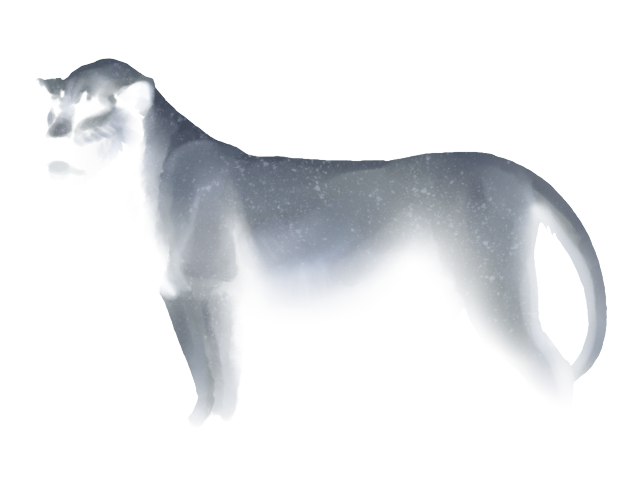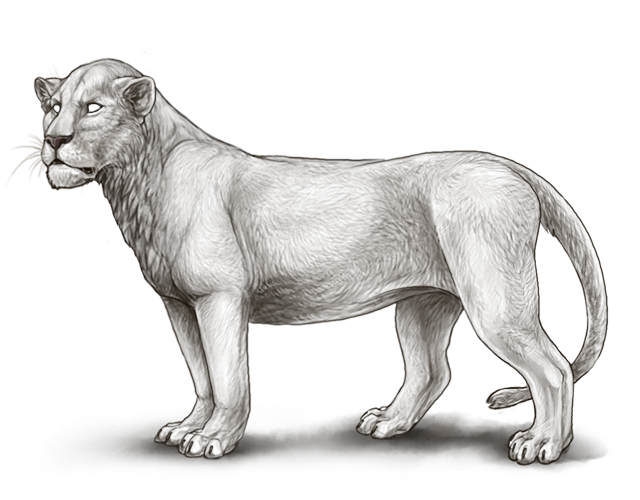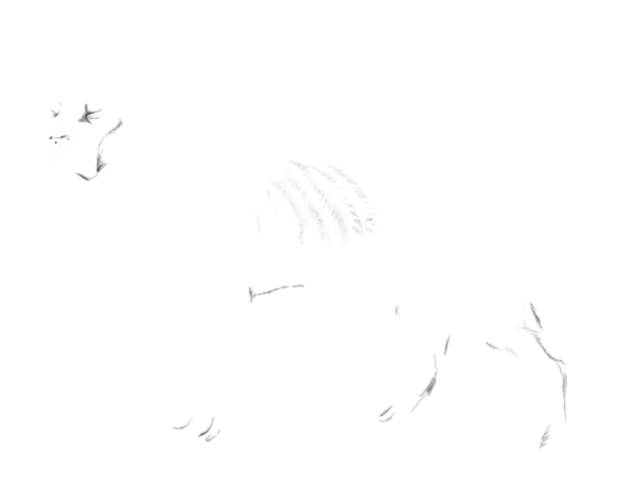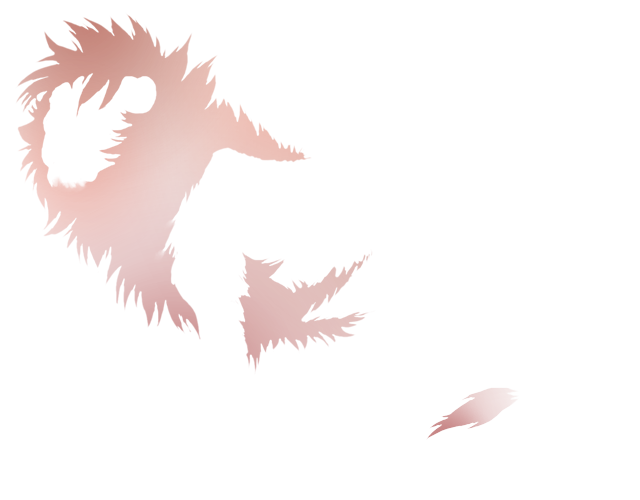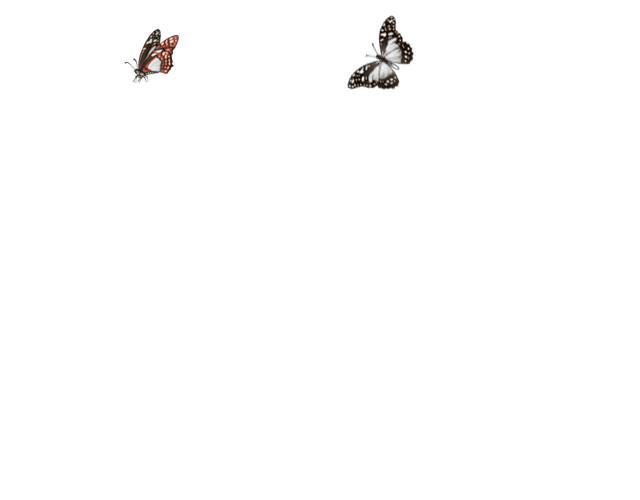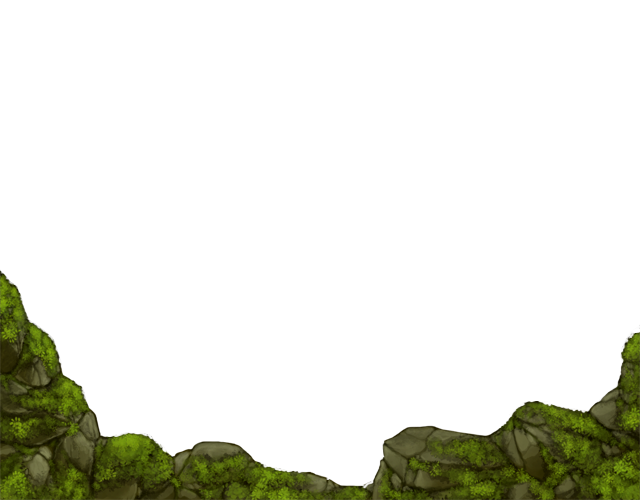|
[History:]
The lion-prophet Dubaku ruled his pride alone, and with as much divine will as he claimed the Wind God gave him. At best, he was distant, sitting up at night on tall hills to pray; at worst, he quaked and shrieked and enacted violence at the slightest transgression of his god’s laws. He had no followers, but, rather a legion of forced converts. These old, fragile lionesses — he never chose young, strong women who could fight back — did his bidding and bore his children.
For years Dubaku tried to have a son. He knew that prophet’s sons were valuable; when their fathers died, they carried on the Wind God’s message in their fathers’ steads. But his “personal army of old women” — as his rivals called the pride in derision — collectively failed to conceive more than once every few years. The few cubs that arose from Dubaku’s seed were invariably female, and those daughters that survived his wrath fled Dubaku’s land as soon as they were old enough.
It was Adisa, Dubaku’s lead huntress, who finally gave birth to a single, living son. That this son survived infancy was less a testament to Dubaku’s blood than Adisa’s. Adisa easily pushed thirteen years of age, but she was the healthiest of Dubaku’s women, and possibly the only lioness in the pride who could match Dubaku in strength. Perhaps owing to this — or to the cub’s similarity to his father in appearance — Dubaku named him Mazuko, meaning, in the holy wind-language, “equal.”
Growing up in a pride comprised entirely of elders, however, shaped Mazuko in a manner his father couldn’t have imagined. Though Mazuko had Dubaku’s coloring and his boundless, zealous energy, the gentle nature of his mothers and aunts stripped him of any natural belligerence. He saw no need for cruelty -- the women could not help that they had grown old. Nor, Mazuko realized as he matured, could they change that Dubaku dominated them in mind, body, and -- it seemed -- soul. Just as it was needless to kill a meandering stickbug as it went on its way, one did not take advantage of another lion’s vulnerability. Not for personal gain. It seemed rather beastly, unnaturally predatory.
So Mazuko decided, with guilt, that he did not like his father. Dubaku abused his position and his abilities in ways that unnerved Mazuko and struck him as excessive. Prophets of the Wind God talked to birds and insects, and could control them, too. Dubaku utilized this magic to force his women into fasting if he felt they had become too ‘soft’; he would send flies down to devour the food Adisa had caught. Similarly, he had vultures carry off the bones of dead pridemates before the pride could, traditionally, bury them.
It was shameful, the way Mazuko felt. The Wind God asked that one respect your ancestors, especially your sire. But he could not even make an attempt at heartlessness. At any rate, his father was kind -- to him. They took long walks together: Dubaku told him of the Wind God’s demands, how lionesses lived to bolster their prophet and show his worth. It seemed Dubaku did not see himself as cruel, but rather an enforcer.
“Father,” Mazuko said, “I think that we should respect the women a little more.” He felt brave that day. “Or a great deal more. Look at mother: she is nearly fifteen, the oldest lioness in the pride, and other than greying you could never tell that she --”
“What does a woman need respect for?” Dubaku asked, turning to glare at his son. “They are objects of adornment -- they have fewer needs and wants as we do. They do not live a full life. Tell me: do you respect the butterflies?”
“I do,” Mazuko said, his eyes on the ground.
After that conversation Mazuko spent more time alone, on the outreaches of the pride’s territory. Alienation colored his day-to-day life. He did not connect with his father or his mother or the other lionesses. He still believed in the Wind God -- such faith is hard to destroy -- but not his father’s Wind God. With the Wind God’s power he spoke to the butterflies, who had become his closest friends. When Dubaku’s fur started to fall out due to horrendous case of mange, and the prophet’s mind further destabilized from the itch, the butterflies knew the cure.
Mazuko did not tell his father, or his pride.
His father eventually died of blood loss, his body covered in self-inflicted wounds. Before he did, however, Mazuko sat by his side, watching without a word. Dubaku used the last of his strength to laugh, and then raise his head up to his only son.
“Telelestai,” said the prophet, which, in the wind language, meant: It is finished.
Mazuko buried his father’s bones and could not bear to rule over his mothers and aunts. He told the lionesses that Adisa was in charge, now, until her death, at which time the lionesses could choose their own leader, male or female. Then he left the land of his father without turning back, his butterflies in tow.
For years he wandered on the outskirts of countless other lion territories. From time to time he was a knight-for-hire in the vast kingdoms of other lions, but they invariably chased him out after he succeeded in the job assigned to him. He preached the word of the Wind God in smaller fiefs, too, with the same results. Mazuko, though he did not intend it, threatened the power of any local leader, simply because he was an adult male with no followers of his own -- except the butterflies.
One night he slept by a dried pond bed and awoke with a young lioness next to him, purring and kneading him. His butterfly companions flitted about the two, settling and then taking flight again.
“Oh,” said the lioness, eyeing him with delight, “I wanted something warm. You must know how hard it is to spend these nights alone, yes, my friend?”
Mazuko moved a few feet away from the lioness. She did not smell like she was in heat, but his deep-rooted honor pulled him away from the wiles of women. No, he was not ready to settle, not yet.
“Don’t be so silly and chaste,” she said, giggling, and then rolling onto her belly next to him, putting a paw under his chin. “Not to be mean or anything. I just wanted a cuddle.”
“I don’t want to be a father, miss,” he said. “Or rather, you don’t want me to father your cubs.”
“Wasn’t looking for that, friend,” said the lioness. She sounded sincere. “Not right now. My father died before I was born; I had no uncles or brothers; none of my aunts’ wandering paramours ever paid attention to me. I’ve never had a good boy snuggle in my life.” She grinned at him. “I’ve been wandering around for one ever since I could hunt on my own. Now tell me your story.”
He did. The lioness crawled under his chin, her ears against his neck, and began to knead him again. The butterflies blanketed the two of them.
“Oh, poor baby,” she said. Again, she sounded completely sincere. “Poor, poor darling.”
They spent the days apart, but night after night Nebula -- the lioness, so named because she was her mother’s star, “Or rather, all of them at once” -- wandered back to him for a cuddle and a knead. She whispered, again and again: “Poor sweetheart. Poor lion. Poor butterfly-man. Poor priestly boy.”
So Mazuko fell in love. The dry pond and the area around it lie uninhabited, and he marked his territory, though the message in his scent said: I will not harm you if you are honest with me, and even then. That night, as Nebula groomed the space between his shoulders, she asked, “Are you the king here?”
“I suppose I am.”
“I suppose that makes me your queen.”
“Only if you would like.”
She purred.
[Personality:]
What makes a good king depends on one’s definition of good. Mazuko is, to some, a good king in that he is naturally friendly, with a relatively easygoing manner that many find accessible. Though a natural introvert, he does not fervently avoid socializing. He falls into brooding sometimes, however: he will separate himself from the pride for a day and think long on his past, and his power, and his purpose. Guilt wracks him often. Did he truly let his father die -- and was it right to do so? Did he abandon his family when they needed him most? Was he meant to lead? There are moments when Mazuko quietly panics, planning to escape his new life and sell himself as a mercenary and knight again. These moments pass, but they leave him exhausted -- unusual for a lion who seems endlessly ready to defend the innocent and weak.
It is because of this zeal that most consider Mazuko trustworthy -- or, at the very least, charmingly naive. The Wind God passed down a code of honor.that, according to Mazuko, he feels in his very blood. Protect women and children; remain honest, even in the face of evil; back down only when the enemy asks for mercy; practice generosity. It is rather medieval (and somewhat sexist, as Nebula sporadically points out) but it is how Mazuko holds his people together. Indeed, it is how he holds himself together. Where his father demanded unyielding devotion, he cultivates respect. And Mazuko has yet to use his holy powers for anything very consequential. He speaks to the butterflies, and sometimes asks the wind to blow his huntress’ scents away from their marks -- but he does not allow himself to press his faith beyond that point.
So, Mazuko is a good king in that he is disciplined, if predictable. Only the most wicked really have anything to fear from him. Indeed, despite his upbringing, he believes the best of lionkind. His queen, Nebula, has a similarly loving (if overbearing) nature, but more easily sees the unscrupulous nature of the world. As his primary and most respected advisor, she attempts to keep his reality in check: not every lion believes in the goodness of the Wind God, or the Wind God at all; not every lion plays fair; not every lion cares at all about the welfare of his women and children. Of course, Nebula reminds her husband of this as she snuggles and kneads his mane, dropping endearments: lovely boy, lovely priest, my favorite lion in all of the world.
|


